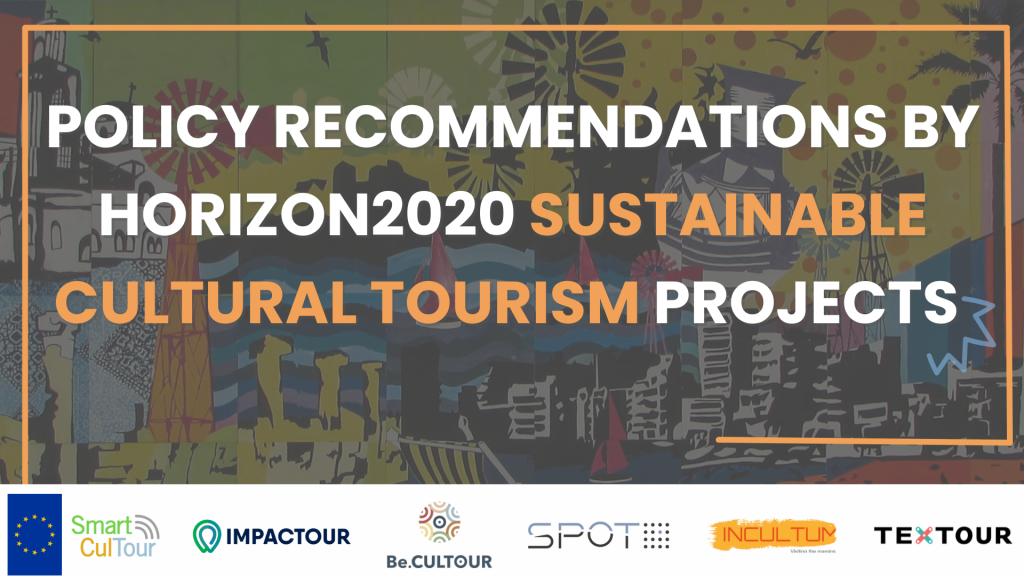This report is the direct result of the policy workshop of 5 July 2022 in Lisbon and Brussels’ round table of 11 October 2022, organized by DG RTD and REA and involving six research projects on cultural tourism funded under the recent Horizon 2020 calls (Be.Cultour, TexTOUR, SPOT, IMPACTOUR, SmartCulTour and INCULTUM. The report contains the main findings and outcomes regarding three main areas: (i) EU Policy and Europeanization, (ii) Research and Innovation, and (iii) Sustainability and Infrastructure.
Within the area of EU Policy and Europeanization, the authors highlight the tangible and recognized potential of cultural tourism but note that additional steps are needed in order to make Tourism a full-value policy sector, also being more specifically recognized within the Green Deal and Structural Development Fund programmes. European routes and joint ticketing systems are identified as important programmes to create linkages around common themes, instigating a sense of ‘Europeanization’ which can further be supported through education, particularly via Erasmus and Erasmus+ programmes.
On the area of Research and Innovation, main policy recommendations relate to the consolidation of new and developed technologies, calling for a Cultural Tourism Cluster to aggregate already developed tools in order to avoid dispersion and reduced usage. Furthermore, within the EC Research & Innovation coordination policy, non-research partners could be asked to deliver credible business plans for measurable and tangible exploitation of results. Innovation is seen as having a crucial role for the further (sustainable) development of cultural tourism and continued support in the form of funding is of particular importance. This also entails providing clear and accurate congregated information on funding possibilities and guidelines for optimal usage. At the same time, in order to make innovations work for local communities, support training for local communities and business should be a central focus.
Finally, within the reflection on Sustainability and Infrastructure, the focus is placed primarily on strategies and policies to support sustainable cultural tourism development. Active heritage communities, included via participatory methodologies are seen as valuable approaches to more effectively integrate potential stakeholder conflicts and overcome these. Furthermore, action-training mechanisms can not only activate local heritage communities in co-developing methods but also in adapting these to local contexts to further facilitate the spread of good practices. Furthermore, in an economic sense, the characteristics of tourism as often consuming – for large part – public goods and leading to an uneven spread of costs and benefits, require a rethink of possibilities to sharing (pooling) costs and benefits of territorial development in more equal fashion. Lastly, even with best intentions, modern innovations, digitization, etc., certain marginal territories do 5 remain limited by important material problems such as lack of infrastructure and mobility. Methodologically analysing such situations, including searching for good practices, and conditions for locally implementing least costly solutions might help to overcome these deficits, particularly when combined with potential financial mechanisms.


